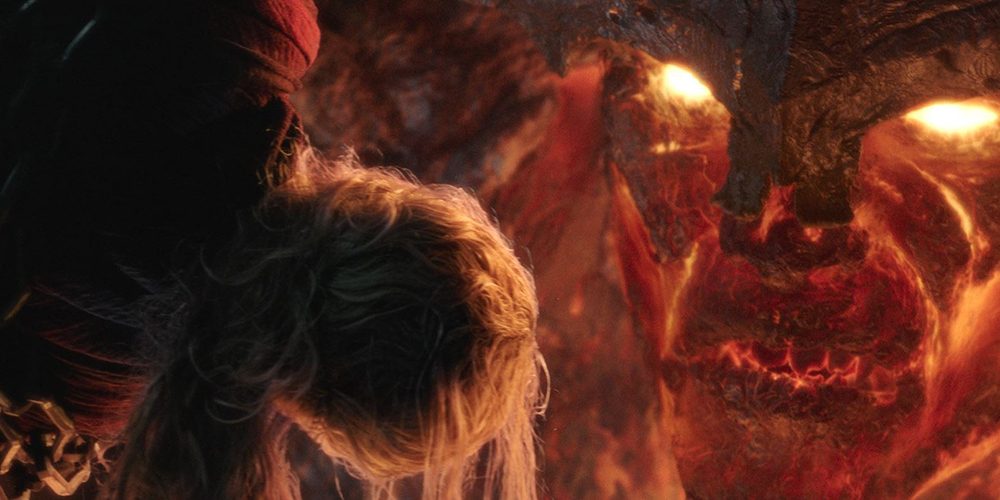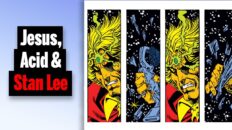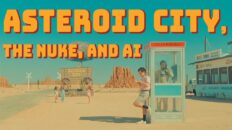“Sometimes people hold a core belief that is very strong. When they are presented with evidence that works against that belief, the new evidence cannot be accepted. It would create a feeling that is extremely uncomfortable, called cognitive dissonance. And because it is so important to protect the core belief, they will rationalize, ignore and even deny anything that doesn’t fit in with the core belief.”
― Frantz Fanon, Black Skin, White Masks
***
I recently had the chance to revisit Thor: Ragnarok and I found I enjoyed the film for its spectacle more than I had on my initial viewing. The opening sequence and time spent on The Grandmaster’s (Jeff Goldblum) planet recalled many of the story settings and arcs I remember from reading the Thor comics of the 80s and early 90s, capturing the essence of the character better than either of the first two films. I also appreciated its themes more the second time around. And while that alone rarely inspires me to write more on a film, I have also been contemplating film critic Steven D. Greydanus’ primary complaint with it: that the film doesn’t give proper weight to the consequence of Ragnarok, the destruction of the Agardian’s home and homeland. In his review, he goes on at length:
Above all, the movie takes as a mantra a line of dialogue that in context basically amounts to “Ragnarok doesn’t matter.” Think about that. If Ragnarok doesn’t matter in a Thor movie, what could you possibly put onscreen ever again that would matter?
There’s no air of foreboding or doom, no sense of elegy or loss or noble sacrifice. The great, tragic heroism of the Norse/Germanic worldview—”The giants will beat the gods in the end, but I am on the side of the gods,” in C.S. Lewis’ paraphrase—finds not the slightest echo here… No one is allowed to care about what is lost here.
Thor’s (Chris Hemsworth) decision to loose the demon Surtur—a Marvel comics character based on the fire giant Surtr from Norse mythology—to commence Ragnarok, the destruction of Asgard, as a means of defeating Hela (Cate Blanchett) feels at first glance reckless and irresponsible, a betrayal of the Asgardian people who have been building their lives in that place. As a way of explanation, the “manta” Greydanus references, “Asgard is not a place, it’s a people” is given by Heimdall (Idris Elba), the all-seeing guard of the Bifrost bridge who has been hiding the surviving Asgardians from Hela’s wrath. While that may come across as trite and patronizing, a platitude that might be offered to children, it’s a deeply radical perceptional shift. And the destruction of Asgard matters a great deal as symbol of this transition.
During the film it is revealed that in the early days of Asgard Odin (Anthony Hopkins), along with his firstborn child Hela, had been a bloodthirsty conqueror across the Nine Worlds and his (relatively) peaceful and benevolent reign we have seen in the first couple Thor films only came about after he had a change of heart and banished Hela. While that may strike fans of the Marvel Cinematic Universe (MCU) as a too-tidy bit of retconning just to fit the story here, it is truer to the mythological record of Odin from Heimskringla, a collection of foundational Nordic sagas. In a sense, what filmmaker Taika Waititi is doing here is peeling away the veneer of nobility and moral superiority of the Asgardian society—literally in the film as Hela strips away a painted ceiling, uncovering the original images of war and violence—that popular culture, and notably Marvel, has assigned it.
If there is “no air of foreboding or doom, no sense of elegy or loss or noble sacrifice” about this, possibly we are looking for it in the wrong place, or not looking for it at all. If we do not register a sense of horror at the realization that one’s society—in the case, the Asgardian society—has been built on violence and destruction and subjugation, it may be because we are accustomed to viewing our loss as noble, but the loss of others as merely regrettable. Our rationalization supports a framework to recognize the destruction of what we have built or what we “own” as doom, but has a hard time assigning that same sense to what others have lost in our acquisition.
A host of questions emerge: Is a society worth saving that has been built on violence, subjugation, enslavement, imperialism? Is it worth saving if it has turned away from those practices of acquisition but still claims right to rule over what it has acquired? Do the current residents of Asgard have any responsibility for the societies their king and previous generations conquered? Are the sins of the fathers passed down to future generations? And if they are, what does that mean? What would it look like? The destruction of their homes? Ragnarok? Is there some form of literal mystical connection between the Asgardians and the land they inhabit?
Land as a possession has mattered a great deal throughout the course of human history. It has mattered to kings and to serfs, to nations and tribes, to capitalists and to communists, and to all stripes of religions and religious institutions (we can point to, for instance, Jewish and Muslim claims and wars over land as core elements of their religious beliefs, or the Christian fixation on the “Holy Land”). The oppressors and the oppressed both value land, if not from a place of moral equality, certainly from a place of structural equality, having the inability to organize the world in a way of valuing property differently than ownership. Writing from his experience and observation of the fight for African independence from Western society, the Martinican philosopher and revolutionary Frantz Fanon stressed the importance of land to subjugated peoples, saying, “For a colonized people the most essential value, because the most concrete, is first and foremost the land: the land which will bring them bread and, above all, dignity.”
Are we to conclude that the argument “Asgard is not a place, it’s a people” is merely a way for the filmmakers to brush aside concerns over Asgardian homes and their homeland? That the destruction of Asgard by Surtur is merely a cynical, karmic plot element? What if we took the implication of the phrase seriously?
If we are serious about the phrase, if we set aside our perception of it as a naïve nod toward utopianism, certain understandings of the world shift. The oppressor, the subjugator, the conqueror has the rug pulled out from under him. And the oppressed, the subjugated, the conquered are freed from the great weight of having to fight for one of the most immediate, concrete elements of survival. Home becomes less about a place and more about the people you share space with, their well being and dignity. Taking the phrase seriously knocks over the entire playing board that orders land and possessions over people.
Thor comes to embrace this rearrangement of order. When he complains, “I’m not as strong as you,” to his father Odin, Odin gives him the courage to overthrow the old system by responding, “No, you’re stronger.” Odin was able to turn away from the practice of conquering lands and subjugating peoples and banish Hela, but he did not have the courage or strength to reorder the system that built his kingdom. What he does have the strength to do is step aside for his offspring and allow Thor to destroy Asgard the place so that Asgard the people might live.
This is a profound statement to make in a tentpole action film and in a superhero series that is often criticized for its formulaic, studio driven predictability. It’s a call for revolution (Waititi cheekily voices the character Korg, a dimwitted but big-hearted enslaved gladiator perpetually looking for an uprising who serves as a motif of the theme) from the privileged children of the old order. And it’s about as directly subversive as you can get, centered around a Nordic god overthrowing the mythology that contributed in the inspiration of phrases like “blood and soil”—a term coined by Richard Walther Darré, a Nazi intellectual, meant to symbolize the mystical bond between land and the German people—and the Western idea of homeland or fatherland.
There is tragic heroism and nobility on display here. But it is the heroism of sacrifice, the nobility of abdication. It is the courage to relinquish ill-gotten gains before the all-consuming drive to defend and hold onto them destroys not just the land, but the people as well. That these themes are explored in a pulpy, sometimes slapstick superhero film doesn’t lessen their weight—in fact, it’s the perfect vehicle to address such issues with an audience who might not otherwise engage—but enhances their subversive elements, highlighting the cognitive dissonance they produce. Ragnarok matters here because it upsets the understanding of what is lost, what should be let go, and what should rightly be valued.









